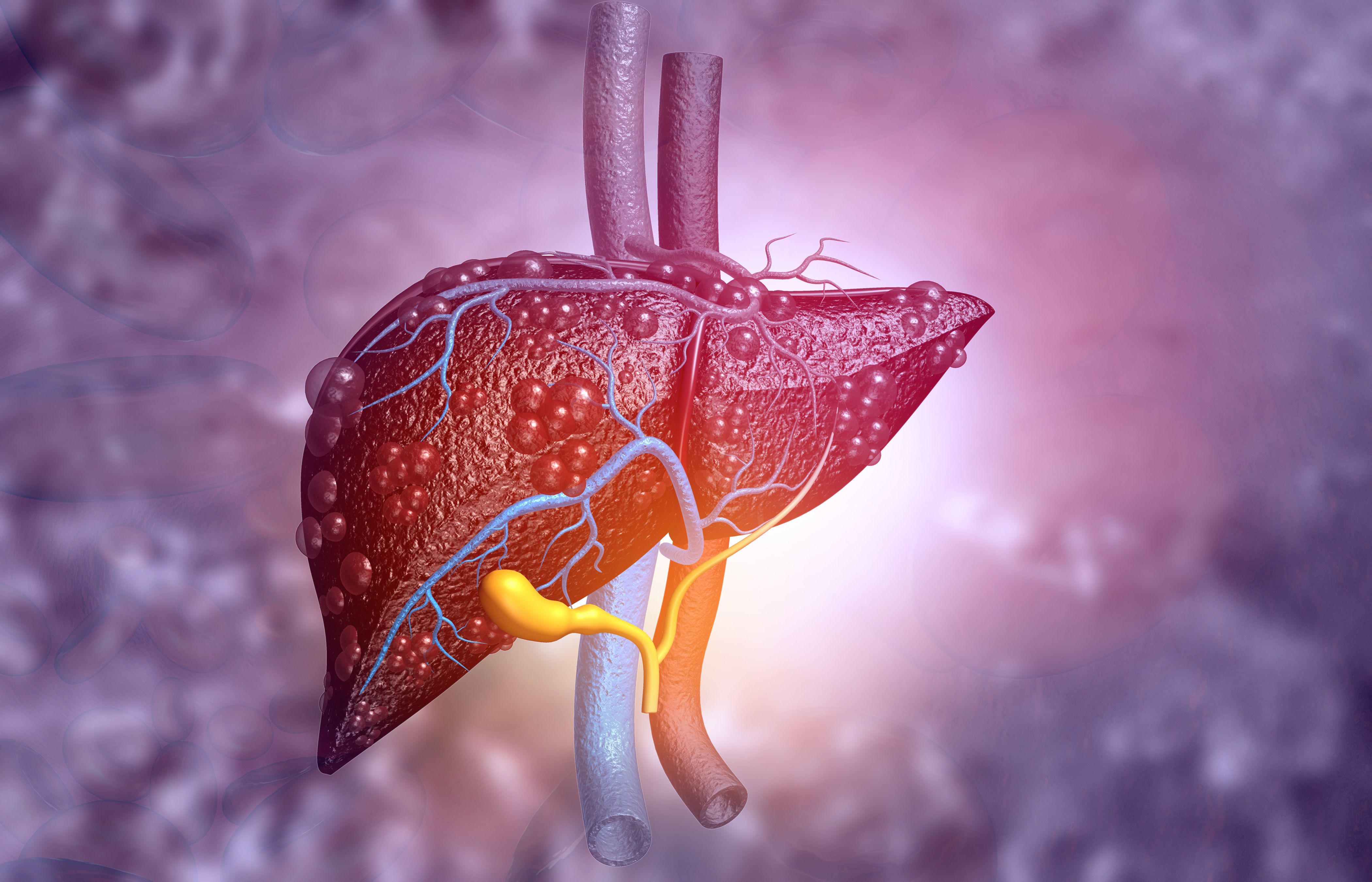GLP-1 Agonists Could Be Key in Reducing Severe Liver Disease for Type 2 Diabetes Patients
GLP-1 agonists may be an effective therapy to avoid severe liver disease in those with concurrent type 2 diabetes.
Image credit: Rasi | stock.adobe.com

Glucagon-like peptide-1 (GLP-1) receptor agonists may help lower the risk of developing cirrhosis and liver cancer in patients with type 2 diabetes and chronic liver disease, a new study indicates. The study, conducted by Karolinska Institutet in Sweden and published in the journal Gut, builds on prior research that indicate GLP-1 agonists, such as Trulicity (dulaglutide) and Ozempic (semaglutide), may lower the risk of liver damage.
"Fatty liver disease is estimated to affect up to one in five people in Sweden, many of whom have type 2 diabetes, and about one in twenty develop severe liver disease," study first author Axel Wester, assistant professor at the Department of Medicine, Huddinge, Karolinska Institutet, said in a press release. "Our findings are interesting because there are currently no approved drugs to reduce this risk."1
GLP-1 receptor agonists mimic the GLP-1 hormone released in the gastrointestinal tract during eating. The hormone alerts the body to produce more insulin, thereby lowering blood sugar. In higher amounts, GLP-1 interacts with portions of the brain that influence appetite and send a signal of feeling full.2
The FDA has approved three semaglutide products to date. Both Ozempic and Rybelsus are FDA-approved to reduce blood sugar in adults with type 2 diabetes mellitus. Ozempic has also been approved by the FDA to lower the risk of heart attack, stroke, or death in adults with type 2 diabetes mellitus and known heart disease. Wegovy has been approved for weight loss, along with diet and exercise, for individuals aged 12 years and above with obesity or some overweight adults with weight-related medical problems.2
Because this drug class lowers appetite, use has grown for the treatment of obesity. To assess the ability to reduce the risk of liver damage, the investigators conducted a register-based study that included all residents in Sweden with chronic liver disease and type 2 diabetes. Individuals administered GLP-1 agonists were compared with those who were not to assess liver damage.
The data show that individuals who took GLP-1 agonists for a long duration had a lower risk of going on to develop more severe forms of liver disease, including cirrhosis and liver cancer. The findings indicate that GLP-1 agonists may be an effective therapy to avoid severe liver disease in those with concurrent type 2 diabetes, according to the study authors.
"The results need to be confirmed in clinical trials, but it will take many years for these studies to be completed," Wester said in the release. "Therefore, we use existing registry data to try to say something about the effect of the drugs before that."1
Many of the individuals analyzed in the study ceased use of GLP-1 agonists, which lowered the protective effect, whereas individuals who continued taking the drug over a 10-year period were found to be half as likely to develop severe liver disease, according to the study authors.
The investigators noted a key limitation of the study was it being impossible to control for factors for which there are no data, including blood tests to properly evaluate liver disease severity. As a result, the study authors developed a database called HERALD, which provides access to blood samples from patients in Region Stockholm.
"As a next step, we will investigate the effect of GLP-1 agonists in this database," study last author Hannes Hagström, consultant in hepatology at the Karolinska University Hospital and adjunct professor at the Department of Medicine, Huddinge, Karolinska Institutet, said in the release. "If we get similar results, it would further strengthen the hypothesis that GLP-1 agonists can be used to reduce the risk of severe liver disease."1
References
1. Popular diabetes drug may also reduce the risk of severe liver disease. Karolinska Institutet. News release. January 23, 2024. Accessed January 26, 2024. https://www.sciencedaily.com/releases/2024/01/240123175522.htm
2. Medications Containing Semaglutide Marketed for Type 2 Diabetes or Weight Loss. FDA. Webpage. Updated January 10, 2024. Accessed January 26, 2024. https://www.fda.gov/drugs/postmarket-drug-safety-information-patients-and-providers/medications-containing-semaglutide-marketed-type-2-diabetes-or-weight-loss#:~:text=Semaglutide%20belongs%20to%20a%20class,reduces%20blood%20glucose%20(sugar).
Protecting Temperature-Sensitive Pharmaceuticals, Without Unnecessary Plastic Waste
March 24th 2025Advances in the life sciences are driving a significant increase in the number of temperature-sensitive pharmaceuticals. The packaging industry is meeting the moment with advances of its own, including high-performance, environmentally-friendly materials that allow life science companies meet stringent thermal requirements and ambitious CO2e reduction goals. In this episode, TemperPack’s CEO Peter Wells shares insights from working with life sciences to move to certified biobased, home compostable, and curbside recyclable shipping solutions.